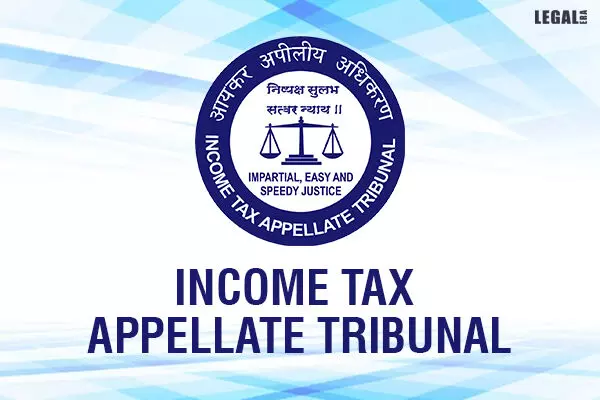- Home
- News
- Articles+
- Aerospace
- Artificial Intelligence
- Agriculture
- Alternate Dispute Resolution
- Arbitration & Mediation
- Banking and Finance
- Bankruptcy
- Book Review
- Bribery & Corruption
- Commercial Litigation
- Competition Law
- Conference Reports
- Consumer Products
- Contract
- Corporate Governance
- Corporate Law
- Covid-19
- Cryptocurrency
- Cybersecurity
- Data Protection
- Defence
- Digital Economy
- E-commerce
- Employment Law
- Energy and Natural Resources
- Entertainment and Sports Law
- Environmental Law
- Environmental, Social, and Governance
- Foreign Direct Investment
- Food and Beverage
- Gaming
- Health Care
- IBC Diaries
- In Focus
- Inclusion & Diversity
- Insurance Law
- Intellectual Property
- International Law
- IP & Tech Era
- Know the Law
- Labour Laws
- Law & Policy and Regulation
- Litigation
- Litigation Funding
- Manufacturing
- Mergers & Acquisitions
- NFTs
- Privacy
- Private Equity
- Project Finance
- Real Estate
- Risk and Compliance
- Student Corner
- Take On Board
- Tax
- Technology Media and Telecom
- Tributes
- Viewpoint
- Zoom In
- Law Firms
- In-House
- Rankings
- E-Magazine
- Legal Era TV
- Events
- Middle East
- Africa
- News
- Articles
- Aerospace
- Artificial Intelligence
- Agriculture
- Alternate Dispute Resolution
- Arbitration & Mediation
- Banking and Finance
- Bankruptcy
- Book Review
- Bribery & Corruption
- Commercial Litigation
- Competition Law
- Conference Reports
- Consumer Products
- Contract
- Corporate Governance
- Corporate Law
- Covid-19
- Cryptocurrency
- Cybersecurity
- Data Protection
- Defence
- Digital Economy
- E-commerce
- Employment Law
- Energy and Natural Resources
- Entertainment and Sports Law
- Environmental Law
- Environmental, Social, and Governance
- Foreign Direct Investment
- Food and Beverage
- Gaming
- Health Care
- IBC Diaries
- In Focus
- Inclusion & Diversity
- Insurance Law
- Intellectual Property
- International Law
- IP & Tech Era
- Know the Law
- Labour Laws
- Law & Policy and Regulation
- Litigation
- Litigation Funding
- Manufacturing
- Mergers & Acquisitions
- NFTs
- Privacy
- Private Equity
- Project Finance
- Real Estate
- Risk and Compliance
- Student Corner
- Take On Board
- Tax
- Technology Media and Telecom
- Tributes
- Viewpoint
- Zoom In
- Law Firms
- In-House
- Rankings
- E-Magazine
- Legal Era TV
- Events
- Middle East
- Africa
ITAT: Payments Paid for Acquiring Membership in a Social Club Cannot be Allowed as Business Expenditure

ITAT: Payments Paid for Acquiring Membership in a Social Club Cannot be Allowed as Business Expenditure
The Income Tax Appellate Tribunal (ITAT), Mumbai, has observed that payments made for acquiring membership in a social club could not be allowed as business expenditure when there was no evidence to prove that membership in the social club was acquired for entertaining customers by the assessee.
The coram comprising of Vikas Awasthy (Judicial Member) and Om Prakash Kant (Accountant Member) has upheld the adjustment under Section 143(1) of the Income Tax Act, 1961, individual’s Club Membership Fees as capital expenditure.
In the present case, the appellant/assessee claimed to be an individual and filed a return of income, which was processed by the Central Processing Centre, Bangalore (CPC). The CPC made an upward adjustment of Rs. 10,76,720 to the returned income.
The assessee filed an appeal before the Commissioner of Income Tax (Appeals) (CIT[A]). The assessee claimed that the amount paid for the entry fee of the membership of Mumbai Cricket Association, Bandra, was for the benefit of the employees and for entertaining the customers of its business. Therefore, it is an allowable expenditure.
The CIT (A), however, rejected the contention of the assessee, observing that the membership fee paid to the club is admittedly a one-time membership fee paid to a Club, MA Recreation Centre, which is capital in nature.
Per contra, the department argued that any expenses for entertaining business customers during club visits could have been allowed as business expenditures subject to verification. However, the one-time entrance fee for acquiring club membership by individual members cannot be treated as a business expenditure.
The ITAT noted that in the grounds raised by the assessee, he had submitted that club membership was used by his employees and customers of business, but as per the normal rules of the club, such individual membership can’t be allowed individual except as a guest accompanied with the said individual.
Thus, the ITAT held that, “as far as individual assessee, is concerned, disallowance of club membership for one time entry fee is not correctly disallowed by the CPC invoking section 143(1)(a) of the Act. On merit also, the claim of club membership time entry fee is disallowable on the ground of personal club facility for soliciting customers, the recurring expenditure may be allowed as business expenditure subject to verification but not the one-time entry fee.”
The ITAT noted that membership fees to clubs could be business expenditures in the case of ‘corporate membership’, but not in the case of individual club membership.
Therefore, the ITAT held that the CPC is justified in making adjustments under Section 143(1)(a).



